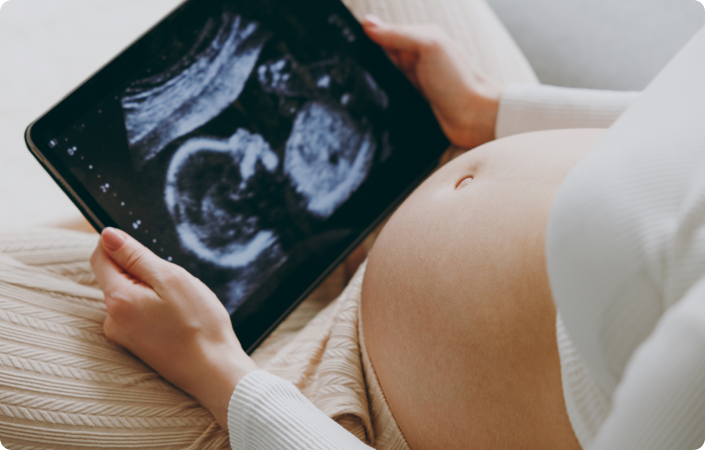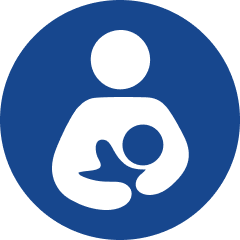

Is Iron Important for Pregnancy?
Iron is an essential nutrient required in sufficient levels during pregnancy, as it plays a vital role in supporting the increased blood volume needed to support a healthy pregnancy and foetal development.
Low iron in pregnancy can cause fatigue, weakness, and complications for both the mother and baby.
Ensuring adequate iron intake through a healthy diet or supplementation is essential to support maternal and foetal health throughout pregnancy.


Symptoms of Low Iron in Pregnancy
During pregnancy, it's important to be aware of the signs of low iron levels which can include fatigue, weakness, pale skin, shortness of breath, dizziness, and headaches.
Regular prenatal check-ups typically include blood tests to monitor iron levels, ensuring early detection and intervention if low iron is suspected.


Folic Acid for Pregnancy
Folic acid is an important nutrient required during pregnancy to support the healthy development of the baby.
Adequate intake of folic acid during pregnancy, which may be aided by folic acid supplementation, helps to prevent neural tube defects such as spina bifida or anencephaly when trying to conceive and in the first trimester.
Specially Formulated for:


Preconception
Fefol Multi-Preg can be taken at least 4 weeks prior to conception to help prepare the body for pregnancy


Pregnancy
Fefol Multi-Preg supports healthy foetal central nervous system and brain development.


Breastfeeding
Fefol Multi-Preg supports healthy eye, vision development, brain & cognitive development in breast fed healthy infants.
Frequently Asked Questions
Can I take iron supplements when pregnant?
Yes, iron supplements can be taken during pregnancy to help prevent low iron levels, but it's important to consult with your doctor before starting any supplements to determine the appropriate dosage and ensure it's suitable for your individual needs.
Can low iron levels in pregnancy affect baby growth?
Yes, low iron levels in pregnancy can affect the baby’s growth and development, potentially leading to complications such as low birth weight. Speak with your doctor if you are concerned about you iron levels.
How many mg of iron does a pregnant woman need?
The recommended dietary intake (RDI) for a pregnant woman is 27 milligrams of iron per day to support the increased blood volume and foetal growth during pregnancy. It is recommended to consult with your doctor before starting any supplement.
What causes low iron in women?
Low iron in women can be caused by factors such as inadequate dietary intake of iron-rich foods, heavy menstrual bleeding, or conditions that can affect iron absorption. During pregnancy, factors such as the increased demand for iron to support foetal growth and changes in blood volume can contribute to low iron levels.
How much zinc per day for a woman?
The recommended dietary intake for zinc for pregnant women is 11 milligrams per day. Zinc is important various bodily functions, such as skin and immune system health, wound healing, and metabolism.
What is Iodine?
Iodine is an essential mineral required for thyroid function, as it is a key component of thyroid hormones that regulate metabolism, growth, and development. Iodine also supports healthy eye, vision, brain & cognitive development in breast fed healthy infants.
What is Folic Acid?
Folic acid, also known as folate or vitamin B9, is a B vitamin that is required for DNA synthesis and the formation of red blood cells.
What are the key ingredients of Fefol Multi-Preg?
Zinc - Fefol Multi-Preg contains 10 milligrams of zinc and 250 micrograms of iodine which supports preconception health and helps prepare the body for pregnancy.
Iodine - Multi-Preg contains 250 micrograms of iodine to support healthy growth and development in breast fed healthy infants as well as general health and wellbeing for breastfeeding women.
Folic Acid - With 500 milligrams of folic acid and 250 micrograms of iodine, Fefol Multi-Preg supports healthy foetal central nervous system and brain development.
Ferrous Fumarate - Fefol Multi-Preg provides 37.7 mg of Ferrous Fumarate, which is the equivalent of 12 mg of iron.
Omega-3s - Our Multi-vitamin includes 222.3 mg of Omega 3s, including 159.3 mg of DHA.
Other Vitamins & Minerals - In total, Multi-Preg contains 18 key nutrients.


